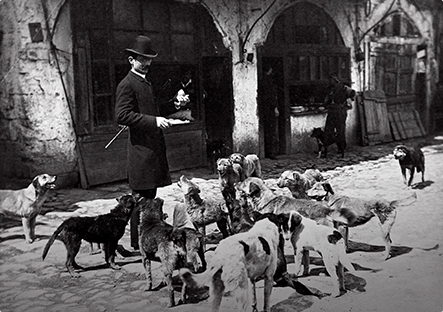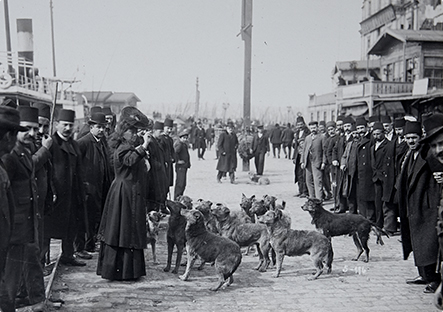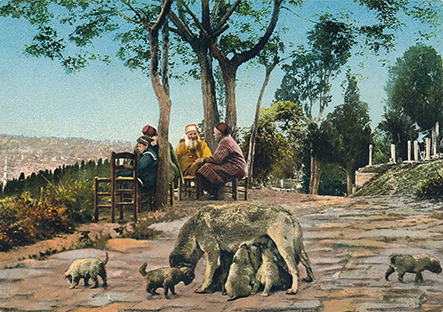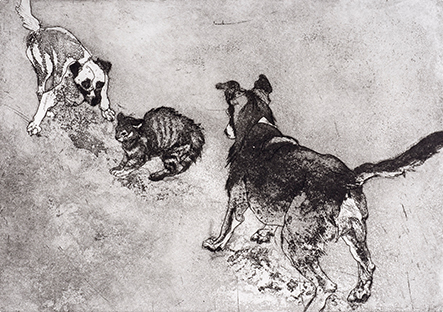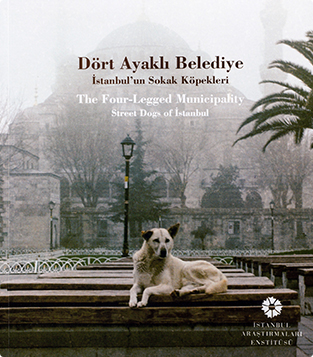
The Four-Legged Municipality
Street Dogs of İstanbul
İstanbul Research Institute presents The Four-Legged Municipality: Street Dogs of İstanbul, an exhibition that sheds light upon the adventure of street dogs, an integral part of İstanbul’s daily life in almost every period of the city’s social history, which changed alongside political, religious, and sociological transformations.
The fact that İstanbul’s streets, apart from the main roads and intersections leading to marketplaces, were deserted until the mid-19th century is in itself a phenomenon that brought the city’s animals into everyday life. Especially in İstanbul’s Muslim quarters, no adequate relationship could be established between spiritual life under the roof of privacy and the worldly life of the street. Indeed it was this sense of distance that bestowed the street on the city’s dogs as their home.
The fate of street dogs, which were the guardians of public property, began to change with the increasing will of getting closer to the “civilized” world. The Ottoman intellectual, who had seen the West, was not at all pleased with the appearance of İstanbul, which fell far short of satisfying those crazes; the streets were narrow and disorderly, the houses little more than ruins, the transportation system did not work, and infrastructure was inadequate. When the dogs, which one never encountered in European cities, were added to this picture, it became a far cry indeed from the modern world. While the four-legged municipality of the Ottomans was being transformed into the two-legged municipality of the Republic, the positivist concept of life was also expunging dogs from İstanbul’s history.
Through photographs, travel journals, postcards, magazines, engravings, and other media dated from the 19th to the early 20th centuries, the exhibition, curated by Ekrem Işın and counselled by Catherine Pinguet, follows the history of these fellow İstanbulites that played an integral part in the city’s social life during their coexistence with humans through the centuries.



